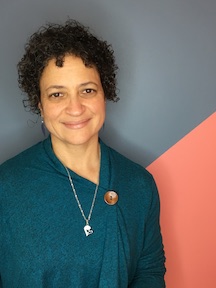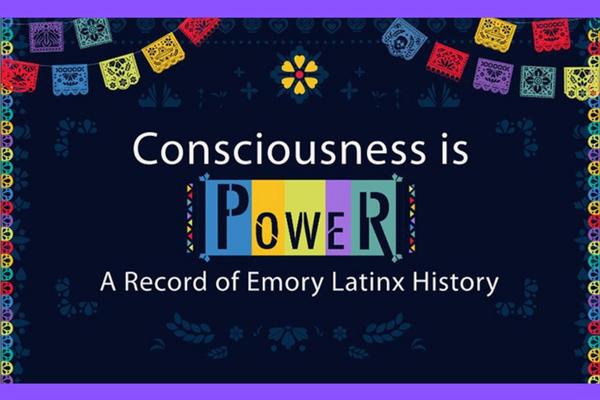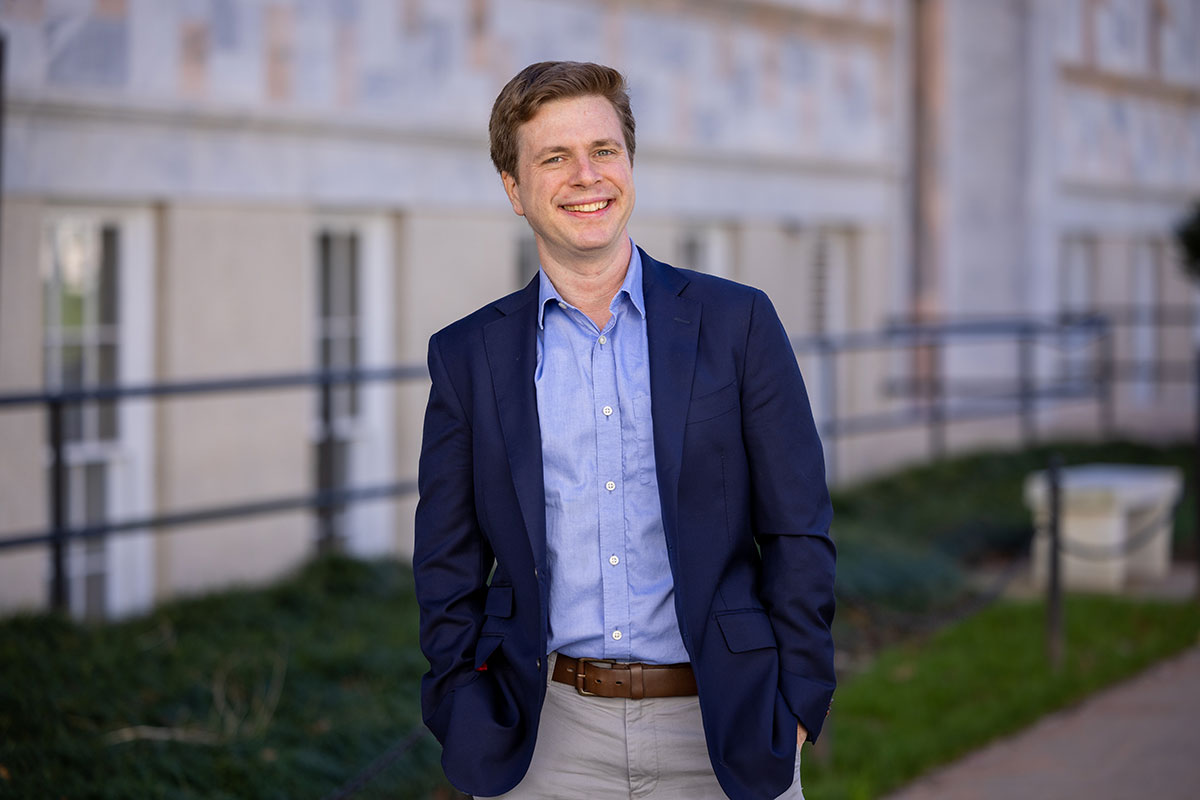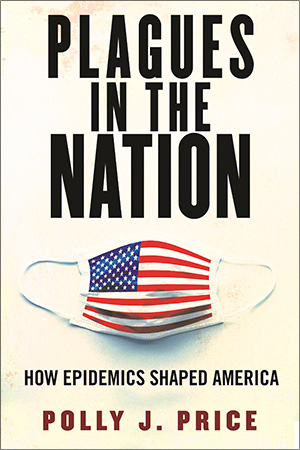The Muscogee Nation and the Indigenous Language Path Working Group held events for Emory students, faculty, and staff on the Atlanta and Oxford campuses this past week. Listening sessions were held on October 27 and 28 for members of the Emory community associated with the Working Group, which is co-chaired by Dr. Malinda Maynor Lowery (Lumbee), Cahoon Family Professor of American History. Then, on October 28, singers, storytellers and other artists from the Muscogee Nation conducted a teach-in on the Quadrangle at the Atlanta campus. Read more about these events and the broader initiative of which they form part via the Emory News Center’s article: “Muscogee Nation members to conduct teach-in; Emory community invited to Indigenous Language Path listening sessions.”
Klibanoff Quoted in ‘AJC’ Article on Dubious 1950 Murder Conviction
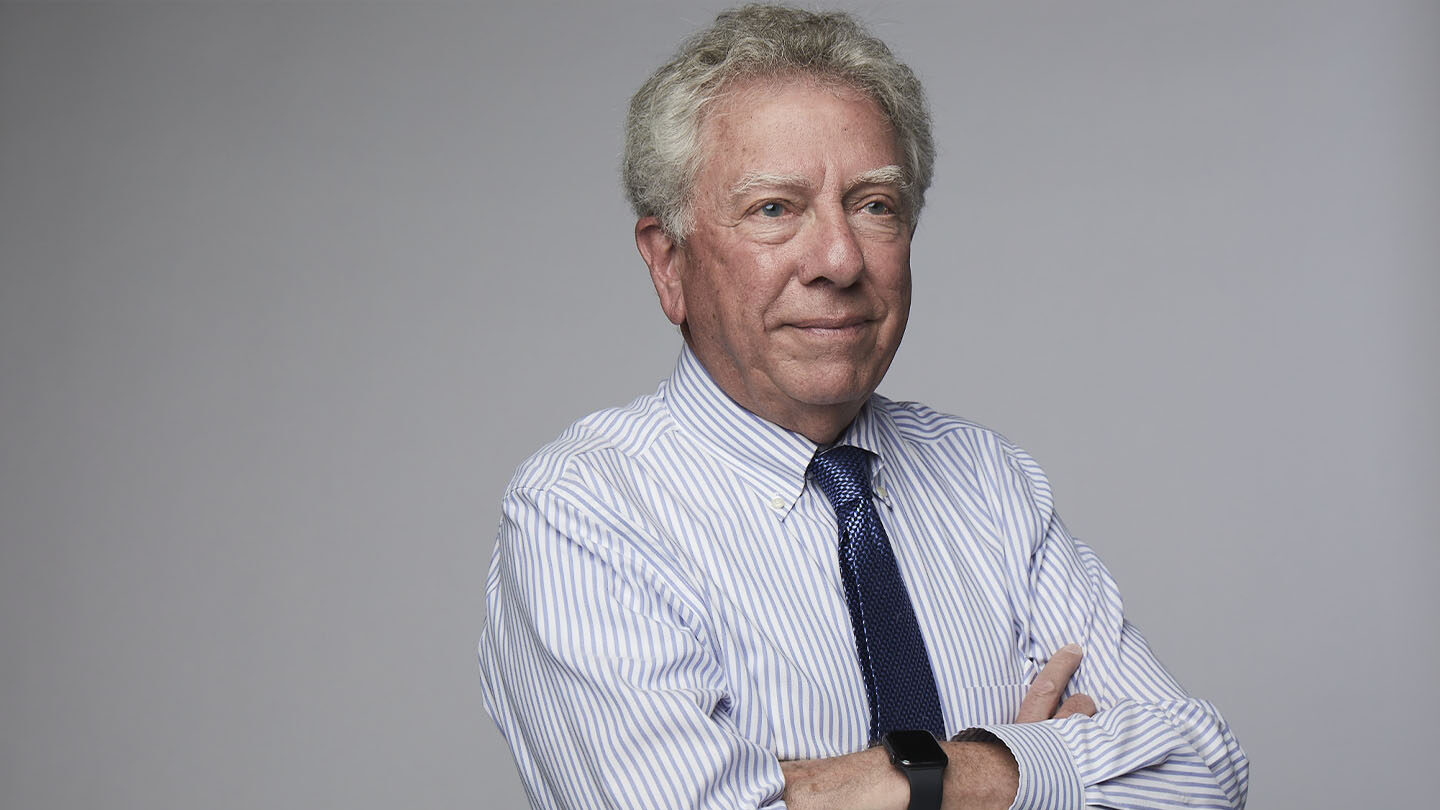
Hank Klibanoff, Director of the Georgia Civil Rights Cold Cases Project and Associated Faculty in the History Department, was recently quoted in an article in the Atlanta Journal-Constitution. The piece focuses on the 1950 murder trial of Clarence Henderson, a Black Carrollton sharecropper convicted of murdering a White Georgia Tech student under highly-questionable circumstances. Prompted by a new book, The Three Death Sentences of Clarence Henderson, the Carrollton county District Attorney is revisiting the case. The Associated Press also recently covered the DA’s decision in the article, “Prosecutor might seek sharecropper’s posthumous exoneration.” Read an excerpt from the AJC article below, along with the full piece here: “Georgia DA revisits decades-old murder case against sharecropper.”
“Hank Klibanoff, an Emory University professor and director of the school’s Civil Rights Cold Cases Project, said addressing injustices from decades past is important, even when the victims and perpetrators are dead.
“‘There is a very important judgment that history can make,’ he said.
“There also is the chance for healing. Klibanoff and his Emory students have delved into several Jim Crow era racial killings and cold cases. In one case, the white descendant of one of the named murderers was so moved by their findings that he sought out the victim’s daughter to apologize.
“‘It went an enormous way to salving their wounds,’ he said.”
Anderson Quoted in ‘NYT’ Piece on the ‘Twin Threats’ to American Democracy

Senior New York Times writer David Leonhardt recently quoted Dr. Carol Anderson in a piece titled “‘A Crisis Coming’: The Twin Threats to American Democracy.” Leonhardt describes these threats as: first, the growing movement within the Republican party to refuse to accept electoral defeat and, second, the increasing disconnect between public opinion and governmental policy. Leonhardt cites Anderson’s work on voter suppression in his examination of these crises. Read an excerpt below along with the full article: “‘A Crisis Coming’: The Twin Threats to American Democracy.”
Still, many experts point out that it is still not clear how the country will escape a larger crisis, such as an overturned election, at some point in the coming decade. “This is not politics as usual,” said Carol Anderson, a professor at Emory University and the author of the book, “One Person, No Vote,” about voter suppression. “Be afraid.”
Lipstadt Discusses Her Work as Special Envoy in ‘The New Yorker’
Dr. Deborah E. Lipstadt, Dorot Professor of Modern Jewish History and Holocaust Studies, recently spoke with The New Yorker’s Issac Chontiner to discuss her work as the U.S. State Department’s special envoy to fight antisemitism. Lipstadt addresses an array of topics, from her motivation in accepting this position to the threat that antisemitism poses to global democracy and security. Read an excerpt from the interview below, along with the full piece here: “Can Countries with Grave Human-Rights Records Help Fight Anti-Semitism?”
“I came across a quote of yours where you said that anti-Semitism is a “threat to democracy and global security. It’s a threat to the stability of society.” You also said that “it rarely stands alone as a hatred.”
“That’s exactly right. I stand by what I said.
“But this gets to what we were talking about earlier in terms of dealing with other countries.
“To go back to the Abraham Accords, I think they opened the space for the sorts of conversations that we never thought possible. Sometimes people say that anti-Semitism starts with the Jews but doesn’t end with the Jews. Maybe the conversation starts about anti-Semitism, but it won’t stop there. It’ll go to other areas as well. It’s a beginning. If it can move the conversation along and change attitudes, then I’m there and I’m willing to take part in it.“
‘I, Too’: A Documentary Film from the Mind of Carol Anderson
Charles Howard Candler Professor of African American Studies Dr. Carol Anderson provides historical context for contemporary practices of white supremacy and political violence in the U.S. through a new documentary, titled I, Too. The film, which premiered at the Carter Center in Atlanta on September 7, is a co-production of Humanity in Action, Emory University, the Bertelsmann Foundation, and the Donner Foundation. The film presents continuities between the insurrection at the U.S. Capitol on January 6, 2021, and earlier events, including the Hamburg Massacre in South Carolina in 1876 and the Wilmington, North Carolina, Coup d’Etat of 1898. Listen to a post-premiere interview between Dr. Anderson and WABE’s Rose Scott here: “‘History is uncomfortable’: Emory professor Carol Anderson live at the Carter Center.”
Rodriguez’s Class Inspires Pioneering, Undergraduate-Curated Exhibit on Latinx History
Emory Libraries has showcased a pioneering exhibit on Latinx histories in recognition of Hispanic Heritage Month. Titled “Consciousness is Power: A Record of Emory Latinx History,” the exhibit was curated by Arturo Contreras, a fourth-year student majoring in Latin American and Caribbean Studies. In the Emory News Center piece about the exhibit, Contreras describes how History Department Assistant Professor Yami Rodriguez helped to inspire the project through her class “Migrants, borders and transnational communities in the U.S.” Read an excerpt from the Emory News Center Article below along with the full piece here: “Celebrating Hispanic Heritage Month with an Emory Libraries pop-up exhibit.”
As a student, Contreras wanted to integrate his community work into his academic life. In spring of 2022, he enrolled in Yamileth “Yami” Rodriguez’s special topics history class to expand as a scholar in the field of Latinx studies. Rodriguez, an assistant professor of history at Emory, inspired and supported Contreras in proposing his exhibit project to the Emory Libraries Events and Exhibits team.
“Yami’s presence is what Emory needed, especially for students wanting to be involved with their respective communities,” Contreras says. “Her field of study and method of facilitating makes the classroom an environment of belonging and safety to explore intellectual curiosity.”
“Celebrating Hispanic Heritage Month with an Emory Libraries pop-up exhibit,” September 14, 2022.
Crespino Analyzes “The Two Sides of Atticus Finch” on ‘Letters and Politics’
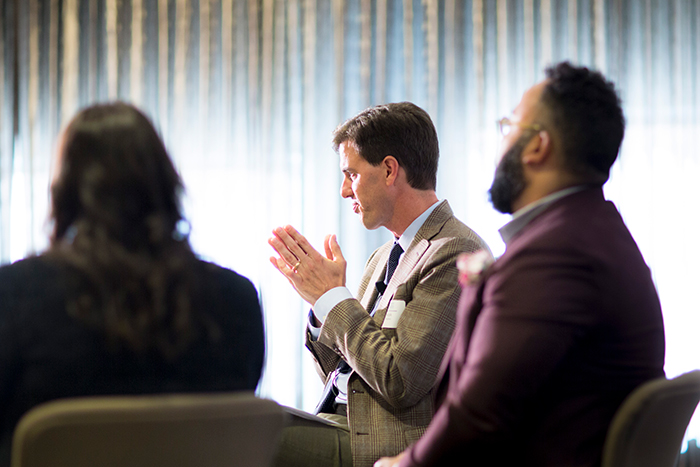
Dr. Joseph Crespino, Jimmy Carter Professor of History, was recently interviewed on the show “Letters and Politics,” produced by the historic California community radio station 94.1 KPFA. Drawing on his most recent book, Atticus Finch: A Biography (Basic Books, 2018), Crespino discussed the seemingly-discrete representations of the American cultural icon Finch in Lee’s To Kill a Mockingbird and Go Set a Watchman, which was released in 2015. Listen to the conversation here: “The Two Sides of Atticus Finch.”
Allitt Reflects on the Life and Legacy of Queen Elizabeth II
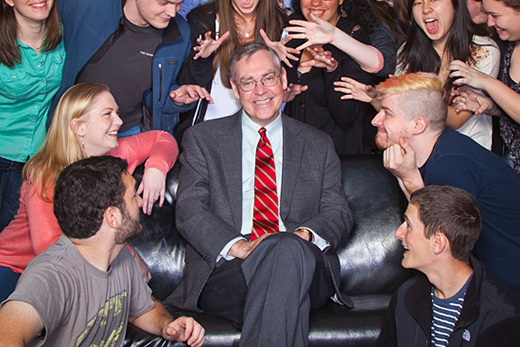
Dr. Patrick Allitt, Cahoon Family Professor of American History, recently authored a piece for the Emory News Center reflecting on the life and legacy of Queen Elizabeth II, who died in September. At Emory Allitt teaches courses on American intellectual, environmental, and religious history, on Victorian Britain, and on the Great Books. He was born and raised in Britain. Read an excerpt from the piece below along with the full article: “Reflecting on the life and legacy of Queen Elizabeth II.”
I was born and raised in Britain so I’ve been hearing about the queen since early childhood. When I was five, at school for the first time, my class followed her route on a big map of North America as she traveled across Canada on an official visit. We were told that the queen was good, and that she headed the British Empire, which was also good. That was 1961.
Patrick Allitt, “Reflecting on the life and legacy of Queen Elizabeth II,” Emory News Center, September 8, 2022.
Now I teach American history to American students. Nothing about America surprised me more when I first came here, in the 1970s, than discovering the American love affair with the British monarchy. After all, the United States fought a revolutionary war to get away from Britain; the second half of the Declaration of Independence is a detailed denunciation of King George III.
LaChance Quoted in Article on Media Coverage of Last Meal Custom
Dr. Daniel LaChance, Winship Distinguished Research Professor in History, 2020-23, and Associate Professor of History, was quoted in an article in The Oklahoman about media coverage of the last meals that people sentenced to death request. The piece comes as the state of Oklahoma has scheduled an unprecedented number of executions between 2022 and 2024. LaChance discusses how the custom affects popular perceptions and policy of the death penalty, specifically, and crime and punishment more broadly. LaChance is the author of Executing Freedom: The Cultural Life of Capital Punishment in the United States (University of Chicago Press, 2016) and, most recently, Crimesploitation (Stanford University Press, 2022), co-written with Paul Kaplan. Read an excerpt from the piece in The Oklahoman below along with the full article: “‘When they stop serving last meals, we’ll stop reporting it.’ Oklahoma death row custom stirs debate.“
The humanizing element of the last meal ritual might contribute to the state’s justification of executions and public support for the practice, one researcher said.
Josh Dulaney, “‘When they stop serving last meals, we’ll stop reporting it.’ Oklahoma death row custom stirs debate.” The Oklahoman, August 14, 2022.
“It represents a kind of way making the violence of the state look more virtuous, more civilized, more humane and not the kind of dirty violence of the murderers the state is punishing,” Daniel LaChance, a history professor at Emory University in Atlanta, said.
While condemned individuals become institutionalized and forgotten by the public as real people with unique personalities, their choice of last meal reveals something of their character, from simply eating what is on the prison menu that day, to requesting extravagant feasts.
LaChance argues the act of choosing also portrays a condemned person as an autonomous agent, capable of decision-making, which has the effect of showing him to the public, without regard to his upbringing, socio-economic status and mental health, as a free moral agent who willfully committed his gruesome crime.
“There’s a way in which by highlighting the last meal and last words, the irony is it serves a retributive purpose,” LaChance said. “It shows the public this person is very much alive and has something to lose. They are losing their lives and the ability to do things people do — plan for the future and consume food according to their taste. And the state engages in these rituals to remind us these are people who deserve what they are getting.”
Price Offers the Long View of Pandemics in the U.S. on MSNBC
Dr. Polly J. Price, Asa Griggs Candler Professor of Law, Professor of Global Health, and Associated Faculty in the History Department, recently appeared on MSNBC’s The Mehdi Hasan Show to discuss the COVID-19 pandemic in historical context. Price is the author of Plagues in the Nation: How Epidemics Shaped America, just published in May of 2022 by Beacon Press. Watch the clip of Price in the embedded video below or on YouTube at “Why Wasn’t America More Prepared For Covid-19?“
